Related Research Articles

The Beer Hall Putsch, also known as the Munich Putsch, was a failed coup d'état by Nazi Party leader Adolf Hitler, Generalquartiermeister Erich Ludendorff and other Kampfbund leaders in Munich, Bavaria, on 8–9 November 1923, during the Weimar Republic. Approximately two thousand Nazis marched on the Feldherrnhalle, in the city centre, but were confronted by a police cordon, which resulted in the deaths of 16 Nazi Party members and four police officers.

On 20 July 1944, Claus von Stauffenberg and other conspirators attempted to assassinate Adolf Hitler, Führer of Nazi Germany, inside his Wolf's Lair field headquarters near Rastenburg, East Prussia, now Kętrzyn, in present-day Poland. The name "Operation Valkyrie"—originally referring to part of the conspiracy—has become associated with the entire event.
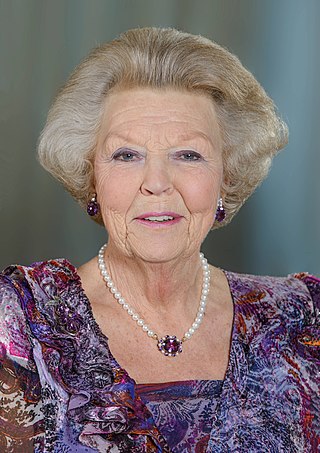
Beatrix is a member of the Dutch royal house who reigned as Queen of the Netherlands from 1980 until her abdication in 2013.

Prince Claus of the Netherlands, Jonkheer van Amsberg was Prince consort of the Netherlands from 30 April 1980 until his death in 2002 as the husband of Queen Beatrix.
Führer is a German word meaning "leader" or "guide". As a political title, it is strongly associated with the Nazi dictator Adolf Hitler, who officially styled himself der Führer und Reichskanzler after the death of President Paul von Hindenburg and the subsequent merger of the offices of Reichspräsident and Reichskanzler.

Alois Hitler was an Austrian civil servant in the customs service, and the father of Adolf Hitler, dictator of Germany from 1933 to 1945.

Franz Halder was a German general and the chief of staff of the Army High Command (OKH) in Nazi Germany from 1938 until September 1942. During World War II, he directed the planning and implementation of Operation Barbarossa, the 1941 invasion of the Soviet Union. Halder became instrumental in the radicalisation of warfare on the Eastern Front. He had his staff draft both the Commissar Order and the Barbarossa Decree that allowed German soldiers to execute Soviet citizens for any reason without fear of later prosecution, leading to numerous war crimes and atrocities during the campaign. After the war, he had a decisive role in the development of the myth of the clean Wehrmacht.
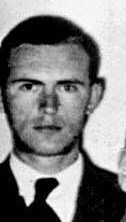
Richard Schulze-Kossens was a Nazi Party member and SS commander during the Nazi era. Before and during World War II, he served as a personal adjutant to foreign minister Joachim von Ribbentrop. He also served at different intervals, as an ordinance officer and SS adjutant for Adolf Hitler and later commanded the SS Division Nibelungen, SS-Junkerschule Bad Tölz. After the war in Europe ended, he was held in an American internment camp for three years and died in 1988.

Kurt Gebhard Adolf Philipp Freiherr von Hammerstein-Equord was a German general (Generaloberst) who was the Commander-in-Chief of the Reichswehr, the Weimar Republic's armed forces. He is regarded as "an undisguised opponent" of Adolf Hitler and the Nazi regime.

Adolf Hitler was an Austrian-born German politician who was the dictator of Germany from 1933 until his suicide in 1945. He rose to power as the leader of the Nazi Party, becoming the chancellor in 1933 and then taking the title of Führer und Reichskanzler in 1934. During his dictatorship, he initiated World War II in Europe by invading Poland on 1 September 1939. He was closely involved in military operations throughout the war and was central to the perpetration of the Holocaust: the genocide of about six million Jews and millions of other victims.

Near the end of his life, Adolf Hitler (1889–1945) followed a vegetarian diet. It is not clear when or why he adopted it, since some accounts of his dietary habits prior to the Second World War indicate that he consumed meat as late as 1937. In 1938 Hitler's doctors put him on a meat-free diet and his public image as a vegetarian was fostered, and from 1942, he self-identified as a vegetarian. Personal accounts from people who knew Hitler and were familiar with his diet indicate that he did not consume meat as part of his diet during this period, as several contemporaneous witnesses—such as Albert Speer —noted that Hitler used vivid and gruesome descriptions of animal suffering and slaughter at the dinner table to try to dissuade his colleagues from eating meat. An examination carried out by French scientists on a fragment of Hitler's skull in 2018 found no traces of meat fibre in the tartar on Hitler's teeth.

Princess Marie Illarionovna Vassiltchikov was a Russian princess who wrote Berlin Diaries, 1940-1945, which described the effects of the bombing of Berlin and events leading to the attempted assassination of Adolf Hitler in the 20 July Plot.
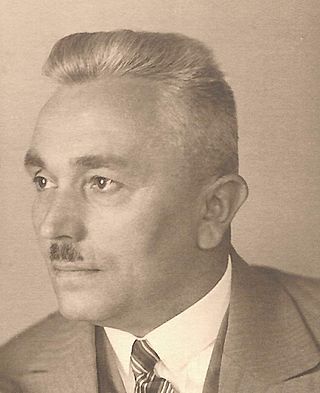
August Friedrich Kellner was a German mid-level official and diarist who worked as a justice inspector in Laubach from 1933 to 1945.

The Goebbels Diaries are a collection of writings by Joseph Goebbels, a leading member of the National Socialist German Workers Party (NSDAP) and the Reich Minister of Public Enlightenment and Propaganda in Adolf Hitler's government from 1933 to 1945. The diaries, which have only recently been published in full in German and are available only in part in English, are a major source for the inner history of the Nazi Party and of its twelve years in power in Germany. The British historian Ian Kershaw wrote in the preface to his biography of Hitler: "For all the caution which must naturally be attached to Goebbels's regularly reported remarks by Hitler ... the immediacy as well as the frequency of the comments makes them a vitally important source of insight into Hitler's thinking and action."
The Oster Conspiracy of 1938 was a proposed plan to overthrow German Führer Adolf Hitler and the Nazi regime if Germany went to war with Czechoslovakia over the Sudetenland. It was led by Generalmajor Hans Oster, deputy head of the Abwehr and other high-ranking conservatives within the Wehrmacht who opposed the regime for behavior that was threatening to bring Germany into a war that they believed it was not ready to fight. They planned to overthrow Hitler and the Nazi regime through a storming of the Reich Chancellery by forces loyal to the plot to take control of the government, who would either arrest or assassinate Hitler, and restore the Monarchy under Prince Wilhelm of Prussia, the grandson of Wilhelm II.
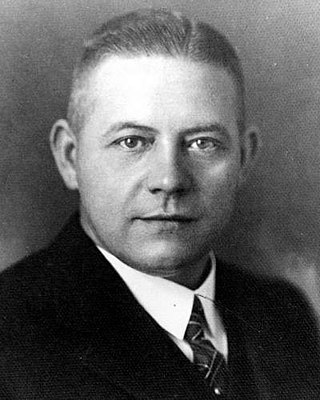
Werner Schrader was a German military officer involved in several plots by the German Resistance including the famous 20 July plot, a coup d'état attempting to assassinate Adolf Hitler.
The Hitler Gang is a 1944 American pseudo-documentary film directed by John Farrow, which traces the political rise of Adolf Hitler. Described as a "documentary-propaganda" film by its studio, Paramount Pictures, the historical drama is based on documented fact and marks the first serious effort to portray Hitler in film. The filmmakers chose to avoid casting stars in the lead roles, assembling instead a remarkable company of lookalikes to play Hitler, Goebbels, Himmler, Göring, and other leading Nazis.

The Order of the Griffon was a State Order of the Grand Duchy of Mecklenburg-Schwerin. Established on 15 September 1884, it was created to honour benevolence and outstanding service to the public. In August 1904, the Order of the Griffon was extended to citizens of the Grand Duchy of Mecklenburg-Strelitz, with the rulers of the two grand duchies serving jointly as the Grand Masters of the order.
War Diaries, 1939–1945 is a book written by Astrid Lindgren. It contains the diary entries that Lindgren made during the Second World War. The book has been translated into many different languages including German and English.
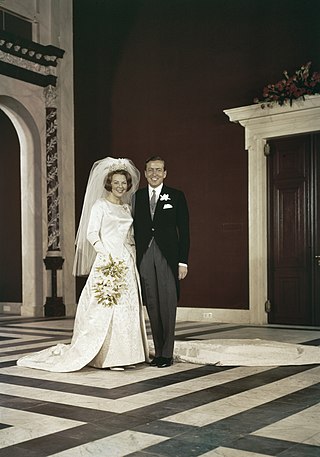
The wedding of Princess Beatrix of the Netherlands and Claus van Amsberg took place on Thursday, 10 March 1966, in Amsterdam, Netherlands. They were married first in a civil ceremony at the Prinsenhof, after which the marriage was religiously blessed in the Westerkerk. The bride was the eldest daughter of Queen Juliana and heir presumptive to the Dutch throne. The groom was an untitled German nobleman. The engagement of the future queen to a German caused an uproar among some Dutch people and the wedding was marred by protests.
References
- ↑ Adolf Hitler, the medical diaries: the private diaries of Dr. Theo Morell
- ↑ "von Amsberg family genealogy" (PDF). Archived from the original (PDF) on 2016-03-04. Retrieved 2012-06-06.